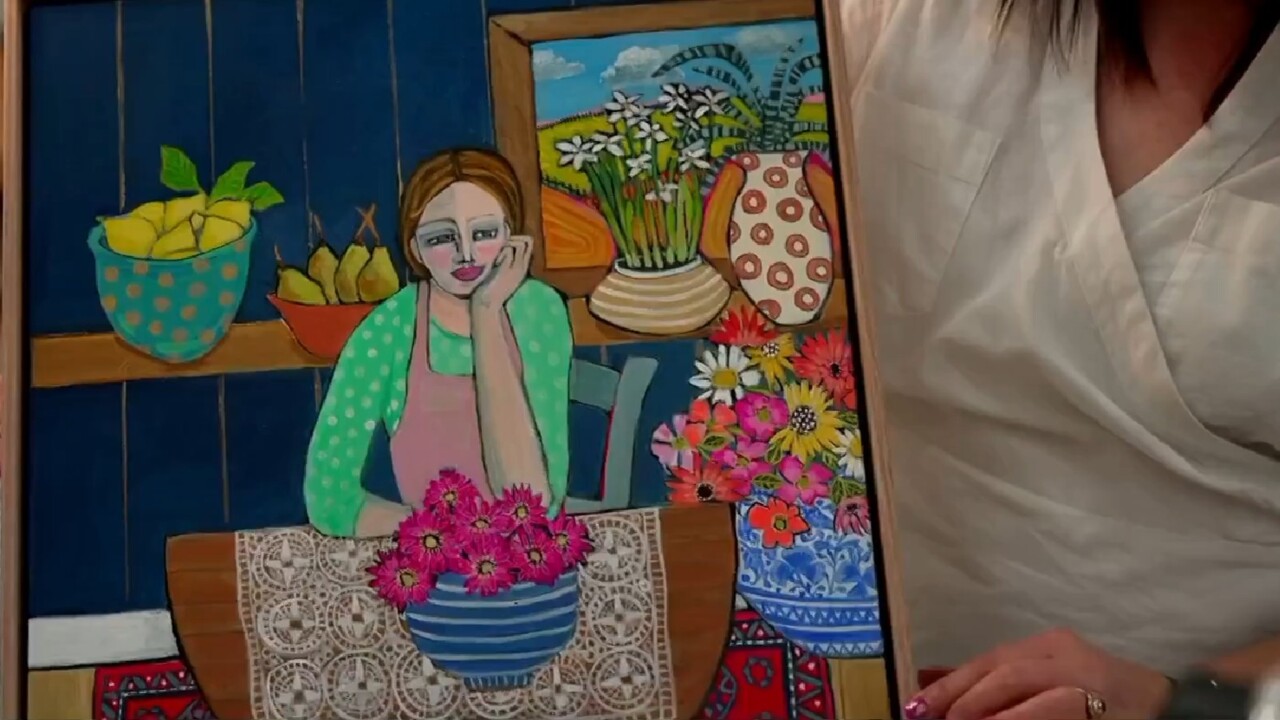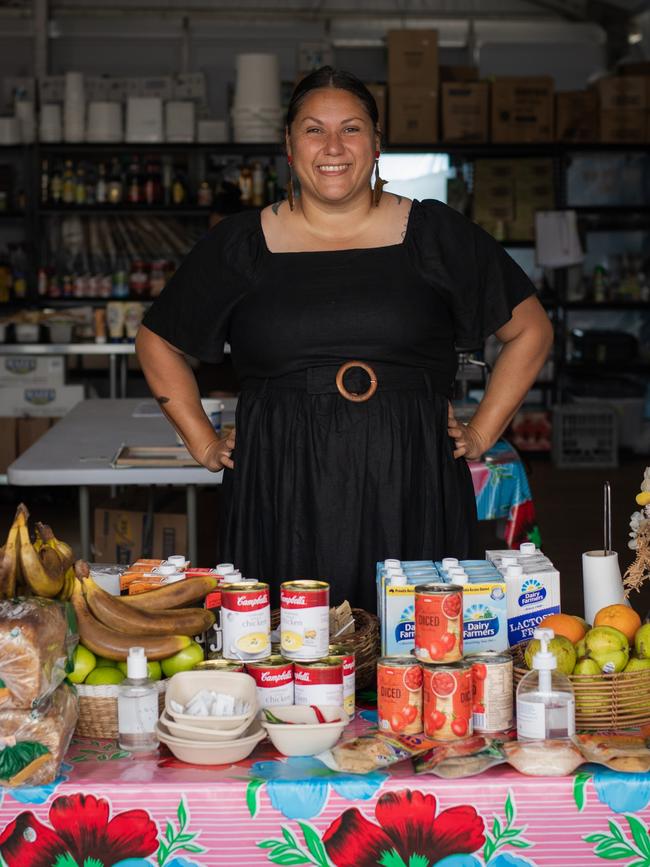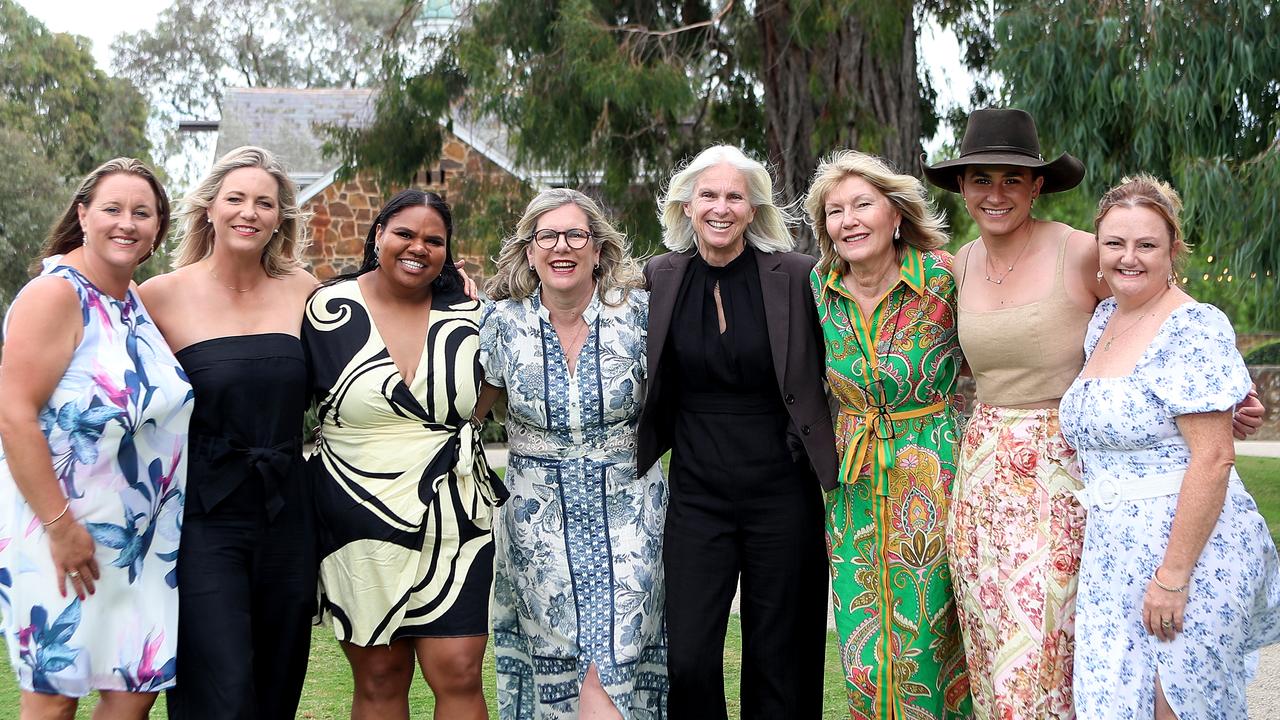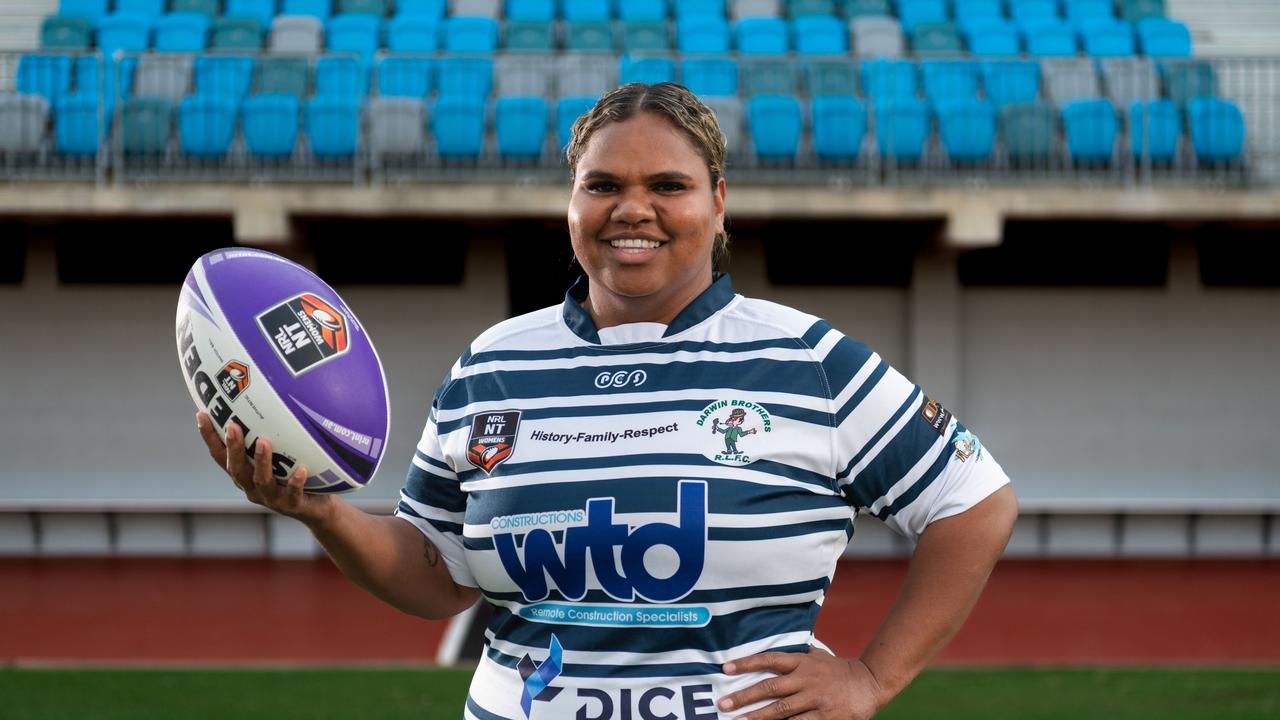Shine Awards 2022: Naomi Moran of The Koori Mail on her flood revival efforts
When devastating floods hit Lismore in February Naomi Moran leapt into action, establishing essential support services from her flooded workplace.

Naomi Moran is a nominee in The Weekly Times Shine Awards, supported by Harvey Norman. If you know a rural woman who deserves recognition, nominate her in the form below and learn more about the Shine Awards here.
It has been eight months since catastrophic floods swept northern NSW into a nightmare, and now many of those same communities, including Lismore, face a second deluge.
Lismore’s Naomi Moran started co-ordinating flood-relief efforts the day after floodwater hit in February this year, and she continues to this day.
The determined Bundalung woman is general manager of respected indigenous newspaper The Koori Mail, and a driving force behind a flood recovery hub set up at the paper’s headquarters in the centre of town.
The Koori Mail office is directly next to the town levee wall and pump station, and was inundated with water in the deluge.
“I sit in my office and I watch the level of the water coming into the river, and when it gets to a crucial point the digital clock comes on the pump, and I can see it from my office,” Naomi says, remembering the hours leading up to the floods.

She watched that clock come on back in 2017, when floodwater reached a metre high in their offices.
So when it blinked on again on February 28 this year, she had a good idea that a muddy torrent might soon wreak havoc.
“On that Sunday when we got the warning that it could potentially could be the same as 2017, myself and my husband and a few staff members came down to the office at five in the afternoon and started to elevate computers and printers to the highest level.
“We thought we might just get a bit more water than 2017, so let’s just be cautious.”
Even their cautious preparation wasn’t enough.
The flood surged through the office, destroying workstations and equipment.
Across Lismore and the region, homes, businesses, farms were all submerged.
Possessions, livestock, livelihoods lost.
Naomi’s family, her mob, her staff and the wider community were all caught off-guard, with the severity of the flood greater than anyone anticipated.
So in the immediate aftermath, Naomi made some big decisions that turned out to be crucial for both the local indigenous and non-indigenous communities.
“It was inevitable that the Koori Mail could not print,” said Naomi, recalling how hard it was to make the call to suspend publishing and tell her 12 local staff.
She asked them what support they needed, but also how capable they were of giving support to others.
“We have an amazing team and everyone has been on board since day dot,” she said.
Their grassroots effort created a central flood recovery support hub in Lismore, collecting and distributing food, supplies, tools and equipment to people who had been badly affected by the crisis.
“Basically, it started with a 3x3 blue marque, trestle table and a couple of fruit boxes and bread,” Naomi said. “It was set up next to our Koori Mail building, with a sign saying donations welcome. It snowballed from there.
“We made a point of servicing our indigenous communities first and foremost.
“Then we were able to service the entire region and we are still doing that seven months later.”
Donations poured in and volunteers came out of the woodwork, travelling from near and far to lend a hand.
Naomi and her team co-ordinated efforts to reach families and communities that had been cut off from outside help.
“At that point resources were really strained,” she said, explaining defence force support did not arrive until about three weeks after the floods.
“Our flood relief centre happened really organically because of the needs of the community.
“That meant that we had to … reach out to people who could donate their helicopters or cars or trucks that could navigate these roads that had been damaged.
“We had key volunteers on the ground meeting the helicopters.
“We would communicate that across social media, because indigenous communities reach out to us that way.
“This was happening for days and weeks.”
But it wasn’t just about supplying food, water and essentials.
Naomi also knew her mob, and the whole community, needed emotional and wellbeing support, so she reached out to doctors, counsellors and nurses, who volunteered their time at the hub.
“Nearly eight months later we have an emotional and wellbeing rep still on site at the Koori Mail,” she said.
The local soup kitchen was also wiped out of action. And the need for fresh hot cooked meals skyrocketed after the floods.
“Not just for those that would go to the soup kitchen normally – but those hit by the floods and the volunteers,” Naomi said.
That is how the Koori Kitchen was born, and a team of volunteers still runs it today, pumping out hundreds of meals for people working in the community, those who have lost jobs due to the floods, the mums and dads under financial pressure who would never have had to use a soup kitchen before.
She said the job of setting up the Koori Kitchen and Koori Mail recovery hub was a lot of work, but relatively simple in concept, because all she and her crew had to do was listen.
“We are doing it the old way. This isn’t about databases and tech. This is about deep listening, writing it down in a notebook and taking immediate action.
“Our role here is to listen and listen deeply and take our knowledge from the community.
“We have no right thinking about how to support them without listening to them first
“If we had a lot of people coming in saying they needed a certain thing, that is what we would put up on the whiteboard.
“The people affected the most by this need to know if they ask something of you, it is going to happen straight away.”
And she did make things happen.
A callout for support online raised more than $1.3 million for affected indigenous communities. Koori Mail has dispersed the funds in grants to local businesses and individuals to help with the flood recovery.
“I don’t think I’ve ever really sat with what’s happened,” Naomi said.
“It has certainly hasn’t been easy.
“For us it was really important to just keep going.”




